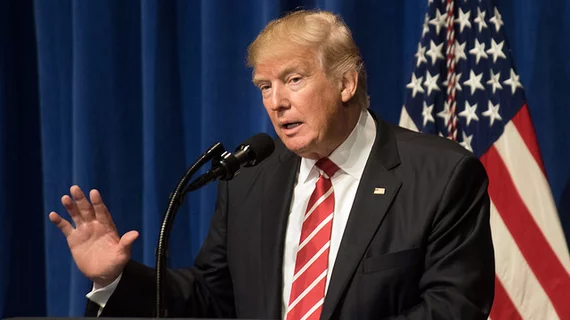Americans remain skeptical of Trump’s ability to lower drug prices
A new report report from Politico and the Harvard T.H. Chan School of Public Health, delved deeper into Americans’ outlook regarding the Trump administration’s policies to address prescription drug prices. Though President Donald Trump has called this one of his “greatest priorities,” poll numbers show the country is skeptical.
Nearly two months after releasing his plan, President Donald J. Trump’s Blueprint to Lower Drug Prices, the Harvard-Politico poll found only 27 percent of Americans said they have heard or read about his prescription drug plan.
The poll also found 57 percent of Americans believe the prescription drug plan will not make a difference, 13 percent believe they will have to pay more for their prescription drugs and 22 percent believe the plan will lower their drug prices.
Tenets of the plan and skeptical statistics
The four major components of Trump’s plan were outlined in the poll, including: (1) allowing pharmacists to tell customers if paying the retail price of their prescriptions would be less expensive than paying their insurance co-pay, (2) the FDA approving greater numbers of generic, over-the-counter (OTC) and biosimilar drugs to encourage competition, (3) requiring drug companies to include pricing in their advertisements, and (4) trying to make other countries pay more for prescription drugs.
- 81 percent of Americans favor allowing pharmacists to tell customers if paying the retail price of their prescriptions would be less expensive than paying their insurance co-pay, but only 42 percent of Americans feel it will lower drug prices.
- 66 percent of Americans favor the FDA approving greater numbers of generic, over the counter and biosimilar drugs to encourage market competition, but only 56 percent of Americans believe it will lower prescription drug prices.
- 63 percent of Americans favor requiring drug companies to include pricing in their drug advertisements, but only 28 percent of Americans feel it will actually lower prices.
- 26 percent of Americans favor trying to make other countries pay for more prescription drugs; only 19 percent of Americans feel it will actually lower prices.
Who is responsible for the prescription drug price hike?
Most Americans—63 percent of Republicans, 70 percent of Democrats and 59 percent of independents—agree drug companies are responsible for the increase in prescription drug prices.
To a lesser extent, the poll noted that Americans also believe pharmacy benefit managers—or companies that negotiate prices between drug manufacturers and insurers over which medications the insurer will cover within its health plan, the federal government, insurance companies and pharmacies—are responsible for the price hikes.

